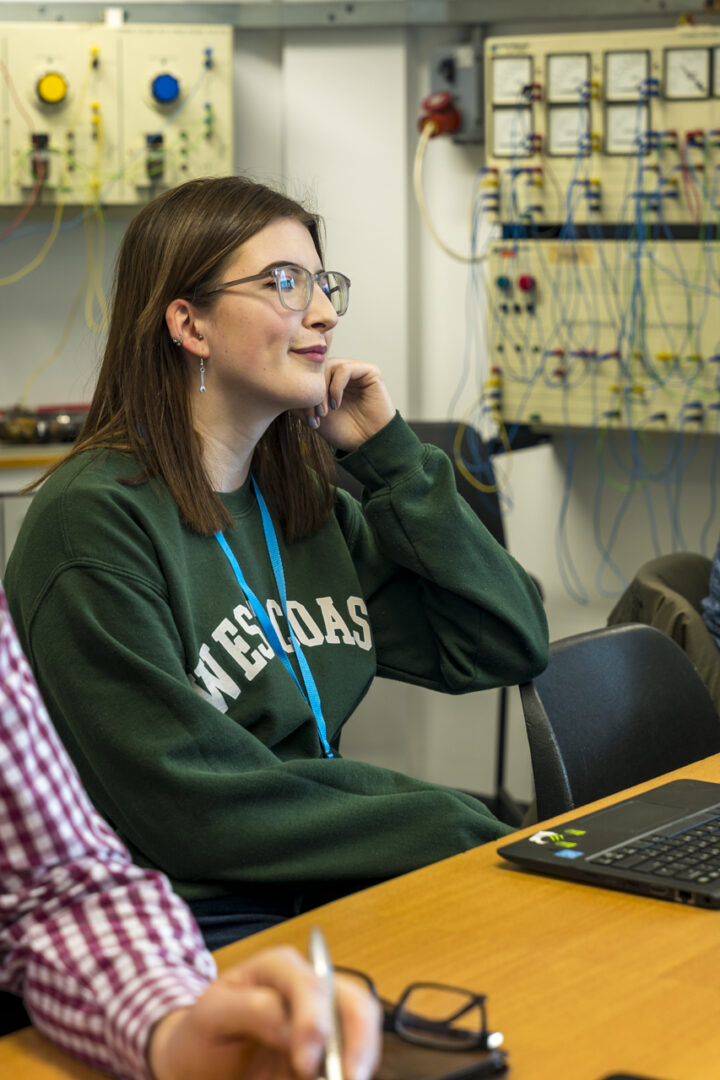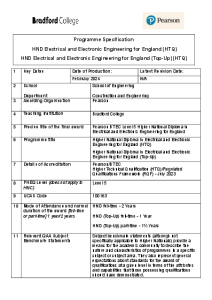Higher National Diploma in Electrical and Electronic Engineering for England
Pearson BTEC Level 5 Higher National Diploma in Electrical and Electronic Engineering for England
Level 5
University
2 years
September 2024
Full-time
Trinity Green Building
Overview
The Pearson BTEC Level 5 Higher National Diploma in Engineering (Electrical and Electronic Engineering) is designed to provide you with a wider knowledge of Engineering principles and methodology, supported by the development of analytical and research skills to prepare you for employment opportunities in the Electrical and Electronic Engineering field. Emphasis will be placed upon reflection, analysis, environmental impact, critical thinking and personal development.
This programme is available as a full programme or Top-up.
Key Info
Teaching and learning methods include:
- Lectures and Seminars
- Workshops and Labs
- Tutorials
- Virtual Learning Environments (VLEs) Moodle
- Work Based Learning
- Guest Speakers
- Field Trips
Year 1:
- Engineering Design
- Engineering Maths
- Managing a Professional Engineering Project
- Production Engineering for Manufacture
- Automation, Robotics and Programmable Logic Controllers (PLCs)
- Quality and Process Improvement
- Electrical and Electronic Principles
- Electrical Machines
Year 2:
- Further Mathematics
- Further Electrical Machines and Drives
- Industrial Power, Electronics and Storage
- Embedded Systems
- Further Electrical, Electronic and Digital Principles
- Utilisation of Electrical Power
- Professional Engineering Management
- Further Programmable Logic Controllers (PLCs)
A BTEC Level 3 qualification in Engineering and a minimum of 80 UCAS points. GCSE Mathematics and English at Grade 4 minimum or equivalent.
Or
A minimum of 80 UCAS points including at least one Level 3 qualification in Maths, Physics or Computer Science. GCSE Mathematics and English at Grade 4
minimum or equivalent.
Or
An Access to Higher Education Certificate in an Engineering discipline awarded by an approved Further Education institution.
Assessments may include elements of:
- Practical assessments
- Portfolios of evidence
- In-class tests
- Lab work
- Case studies
- Examinations, both open and closed book
- Reflective activities where you look back over your experiences, analyse them with the assistance of relevant theory and reflective tools, and learn from the experience, online discussions that you have had with your peers, tutors and invited contributors to the programme
- Oral and written reports
- Journals, blogs and log books
- Plans (eg action plans, plans for your group activities)
- Presentations
Although this course does not directly offer work experience, there are opportunities for you to undertake a work placement or work experience during your time studying on this course.
The programme is designed to support career progression for anyone working in Engineering or for those who would like to develop their knowledge and skills and pursue a career in this field.
Full-time: £8,000.
Part-time: Pro rata rate depending on intensity of study*
*Intensity of Study refers to the amount of credits being studied in the academic year.
This is representative of the most common fees scenario, but actual fees can vary depending on a number of factors. Please contact us if you need more guidance.
Videos
If you have any questions or require any additional information, please contact [email protected]
Disclaimer: Our prospectus, college documents and website are simply here to offer a guide. We accept no liability for any inaccurate statements and are not responsible for any negative outcomes if you rely on an inaccurate statement. We reserve the right to withdraw any programmes or service at any time.





